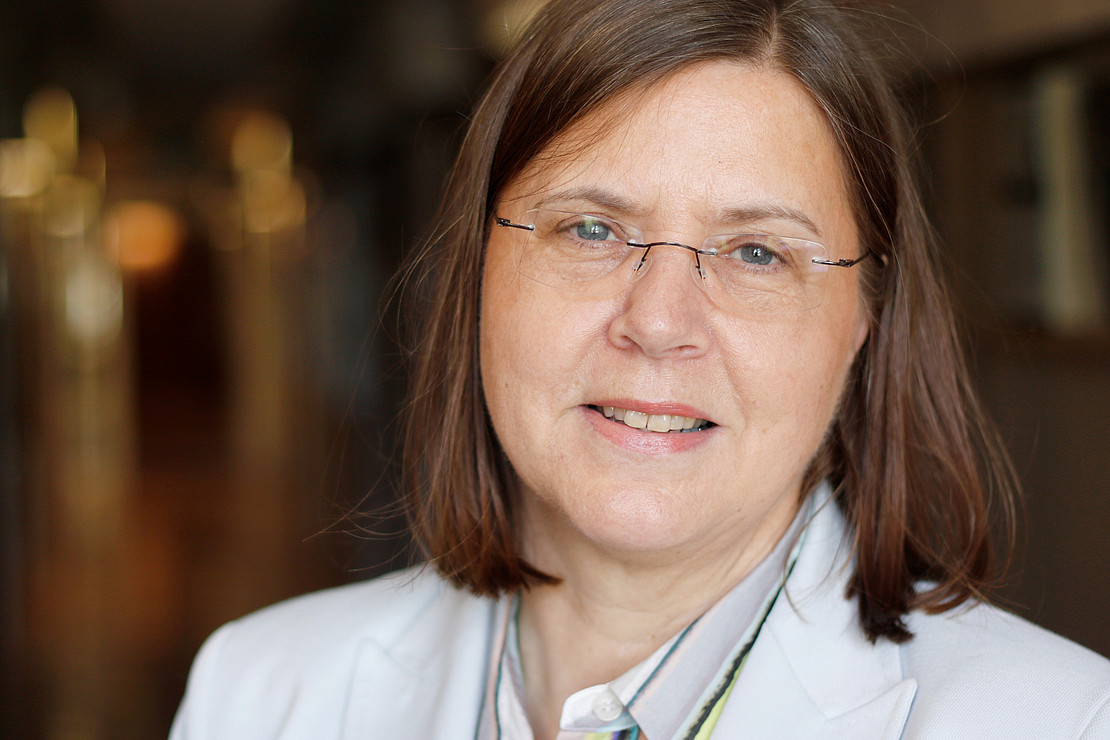This page contains automatically translated content.
"We can help"
 Image: Sebastian Mense
Image: Sebastian MenseThe schools have once again started a school year characterized by corona - it is now the third. What will remain? What does research say about the consequences? And what does this mean for teacher training? We spoke to Prof. Dr. Dorit Bosse, Chair of the Center for Teacher Education.
publik: Ms. Bosse, how big are the gaps in knowledge left by a year and a half of school or non-school in corona times?
Bosse: So far, there are no study results on learning success during the coronavirus period, at least not from Germany. Only surveys of pupils, teachers and parents.
publik: What is the trend?
Bosse: According to a parent survey by the Institute for Economic Research, learning time, i.e. lessons plus homework plus preparation, has fallen by around half, from an average of 7.4 hours a day to 3.6. Performance must inevitably suffer as a result of the reduced learning time. This is also indicated by studies from Belgium and the Netherlands. Distance learning cannot replace face-to-face teaching, at least not for everyone.
publik: That means it can for some?
Bosse: A survey of high school students from this year showed that this group of students copes well with distance learning, but they are also better able to organize themselves. The younger the students are, the bigger the gaps are likely to be. And last year's study from Belgium makes it clear that social background is once again having a greater impact on educational success as a result of coronavirus lessons.
publik: So the coronavirus generation is mainly found in socially disadvantaged families?
Bosse: Further studies will certainly show this in the near future. Incidentally, there are studies from Belgium and Argentina on how longer teacher strikes have had a long-term impact on the educational success of pupils: They increased the likelihood of repeating classes and led to lower educational attainment - including effects that were noticeable on the labor market.
publik: So where there are gaps, they need to be closed as quickly as possible. What needs to be done?
Bosse: There is the "Catching up after Corona" action program. We at the University of Kassel are now, at the beginning of September, preparing an offer with funding from the state. If school principals contact us, we can then help with students who go to the schools.
publik: The student teachers offer extra lessons at the schools?
Bosse: We first diagnose where the greatest deficits lie and offer targeted support in the core subjects, but also in arts subjects or swimming lessons, for example. A second project: we coach students who are already teaching in schools on employment contracts so that they can improve their teaching. All of this is due to start this semester.
publik: Do children actually learn better in small classes than in large ones? Some studies claim that size doesn't matter. However, many teachers and parents have found that pupils do better in half classes during coronavirus alternating lessons. Does that answer the question?
Bosse: The studies so far have been contradictory. Korea, for example, one of the top 10 countries in PISA, has relatively large classes, but also a different culture of discipline. In other societies, where children demand more interaction, the results may be different. The assumption that class size does not play a role also contradicts my subjective experience as a former teacher. Incidentally, it also contradicts the DISUM study in mathematics didactics, which was carried out by Werner Blum at the University of Kassel a few years ago.
publik: How lasting was the shock in schools? How digital will they become in future?
Bosse : The equipment in schools limits the possibilities. The availability of WLAN and end devices in Germany is soberingly poor. This is gradually improving, but it will take time. Many teachers have had good experiences with digital teaching, sometimes supporting each other. Even in face-to-face lessons, teachers will certainly integrate more digital tools in the future.
publik: Of course, we also need to train our students for this ...
Bosse: We started doing this long before corona. We invested heavily in new teaching formats, and not just through the PRONET program. We work with digital teaching and learning labs, podcasts, explanatory videos, collaborative tools and so on. Not just since yesterday.
publik: Does this mean that a generation of graduates will arrive at schools who are well prepared for the digital age?
Bosse : Over the next few years, this will be even more the case than it has been so far. Students gain their experience of digital teaching and learning at university and they will take this with them into schools.
This article appeared in the university magazine publik 2021/3. Interview: Sebastian Mense
What opportunities creativity researcher Olaf-Axel Burow sees for schools: www.uni-kassel.de/go/burow